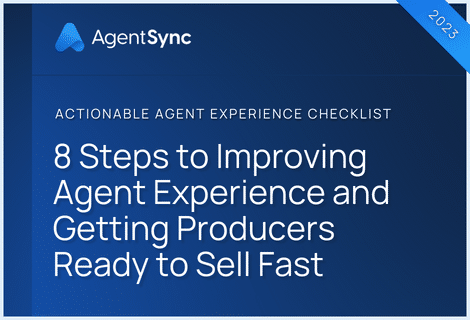

When it comes to the mass retirement sweeping the insurance space, we’ve talked in detail about how to attract new talent and the transformation younger generations will bring to the industry. This time, we are going to focus on the individuals who are leaving the industry and how policyholders and other industry professionals will be affected by their absence.
Although a majority of insurance agents are either at or very close to retirement age, not a whole lot of them are actually planning for retirement any time soon. Whether their reasons for putting off retirement are financial, or their passion for the work keeps them going, not a lot of insurance agents have a succession plan in place.
At first glance, this may not seem like a big deal. As long as an individual is still in good health and wants to continue helping clients with their insurance needs there’s really no reason to think about retirement. Unfortunately, life is unpredictable and you never know when a worsening health condition, permanent disability, or in the worst-case scenario, death could force you into retirement. No one should be more aware of this reality than insurance agents! Yet a lack of succession planning in insurance agencies is a major issue.
Reasons to consider a succession plan
While coming to terms with your mortality isn’t the most appealing way to spend an afternoon, insurance agents may want to start planning sooner rather than later. While you might be in good health at the moment, you never know when things could take a turn for the worse. Having a plan in place will save you from scrambling to figure things out when the time does come.
Creating a succession plan can also give you peace of mind that your family and clients will be taken care of in the future. When you do eventually step down from your business through retirement or otherwise, you can rest easy knowing that your family doesn’t have to worry about tying up any loose ends you left behind in your business. And your clients will be thankful to know that you haven’t left them on their own trying to figure out where their current policies stand.
If you are an independent agent wondering what your options are for succession planning you’ll be happy to know that you have a few different options. Let’s discuss what they are and how they will affect your clients.
Option 1: Pass your book of business down to a family member
The first and maybe the most obvious option is to transfer your book of business to a family member. Some independent agents inherited their book of business from a parent and are now looking to pass the torch to their children.
For agents who have built close relationships with their clients, keeping the business in the family can help build trust and maintain strong client relationships. This can be a good option for agents whose children are already well-versed in your business operations, including already being licensed insurance producers themselves.
However, not all children want to follow in their parents footsteps. Avoid a “this is your dream, not mine” conversation and only consider passing your business to a family member if it’s clear that they’re interested in taking over. If you do plan on following this route, you’ll need to make sure the individual taking things over is properly trained and licensed before you transfer over any power.
Option 2: Sell your book of business
As long as you completely own your book of business, another option is to sell it to another licensed producer or insurance agency. The challenge here is finding someone (or company) you can count on to take good care of your clients. If you do choose to sell, you should give your clients ample warning. Send out an announcement letting your clients know who will be taking over and when they can expect the transition to occur. Ensuring a smooth leadership transition will be key when it comes to maintaining the customer relationships you’ve worked so hard to build.
One of the biggest challenges of selling your book of business is figuring out what it’s worth and finding a buyer who will give you a fair valuation for it. The amount a business or individual is willing to pay will depend on a few different factors. For example, you’ll likely get a higher price if you can show the buyer that you have new business opportunities and your business doesn’t only consist of renewals.
Another major factor in the valuation of your book of business is whether or not your operations are digitized. If you’re still storing your client information in filing cabinets and haven’t moved it over to a customer relationship management software (CRM) and agency management system (AMS), you might not get the best valuation. We’ve previously discussed in depth how your technology can impact your agency’s value and attractiveness to buyers.
Option 3: Let your book of business fade away over time
Probably the easiest (but worst) succession option is just to let your business run off. In this case, your clients will still be protected through their current policies, but you will no longer offer them support or reach out when it comes time for renewal. While this option requires little to no work for the agent, it puts your clients in an awkward position.
Policyholders will be confused if you suddenly stop reaching out to them and stay silent when they ask for guidance. Most of them will end up in a strange sort of limbo where they’re unsure whether you are handling their insurance needs or not. Once they figure out you are no longer interested in helping they’ll probably defect to your competitors pretty quickly. If you decide to go this route, we recommend (at the very least) sending a letter or email letting clients know that you’re no longer actively in business.
A lot of agents have been building their book of business for the better part of their life. Giving up at the end might leave you feeling like all that hard work was for nothing. It’s better to have a clean break and let your legacy as an agent who truly cared for his or her clients live on.
What if you don’t own your book of business?
Succession planning looks a little different for anyone who doesn’t own their book of business. If an agent works for an agency, it’s very likely that any business they’ve generated belongs to the agency. In this case, it’s up to the agency to provide the necessary support to clients whose agent either retires or dies.
While producers play an important role in forming the relationship between clients and an agency, the loss of a producer rarely leads to the loss of clients for an agency. In most cases, a larger agency will transfer an account to a different producer. Hopefully, the agency’s reputation helps clients rest assured that whichever agent is working with them will maintain the high level of service they’ve come to expect.
Succession planning is important to maintaining the client-agent-carrier relationship
Insurance is a relationship business. The three-way partnership between insureds, agents, and carriers must be maintained to ensure success for all three parties. When agents give their business to carriers they are trusting them to provide their clients with the right coverage for the best price. To make that happen, carriers trust agents to deliver accurate customer information.
When agents retire or otherwise leave the workforce without a succession plan in place, they are putting their relationship with both clients and carriers at risk. We’ve already discussed how client relationships can be affected, but carriers also face negative impacts from mass producer retirement.
For example, when agents leave the workforce without informing carriers, carriers risk paying to renew appointments for producers who are no longer active. For insurance carriers paying for appointment fees for thousands of producers across multiple states these costs can add up quickly.
Whatever your agency succession plan, technology can help
If you’re one of the many insurance agents approaching retirement age, or perhaps one of the many who’ve recently inherited or acquired someone else’s book of business, having the right technology in place is a winning strategy. Modern insurance infrastructure helps agencies of all sizes and stages of growth ensure each licensed producer is in compliance at all times. It reduces costs, increases efficiency, and lets your agency do more with the limited resources you have. That’s something everyone can appreciate: from the producer who plans to work until the day they die to the agency owner looking to make a nice profit from selling their life’s work. If you’re looking to see how technology can help your agency, check out AgentSync.

